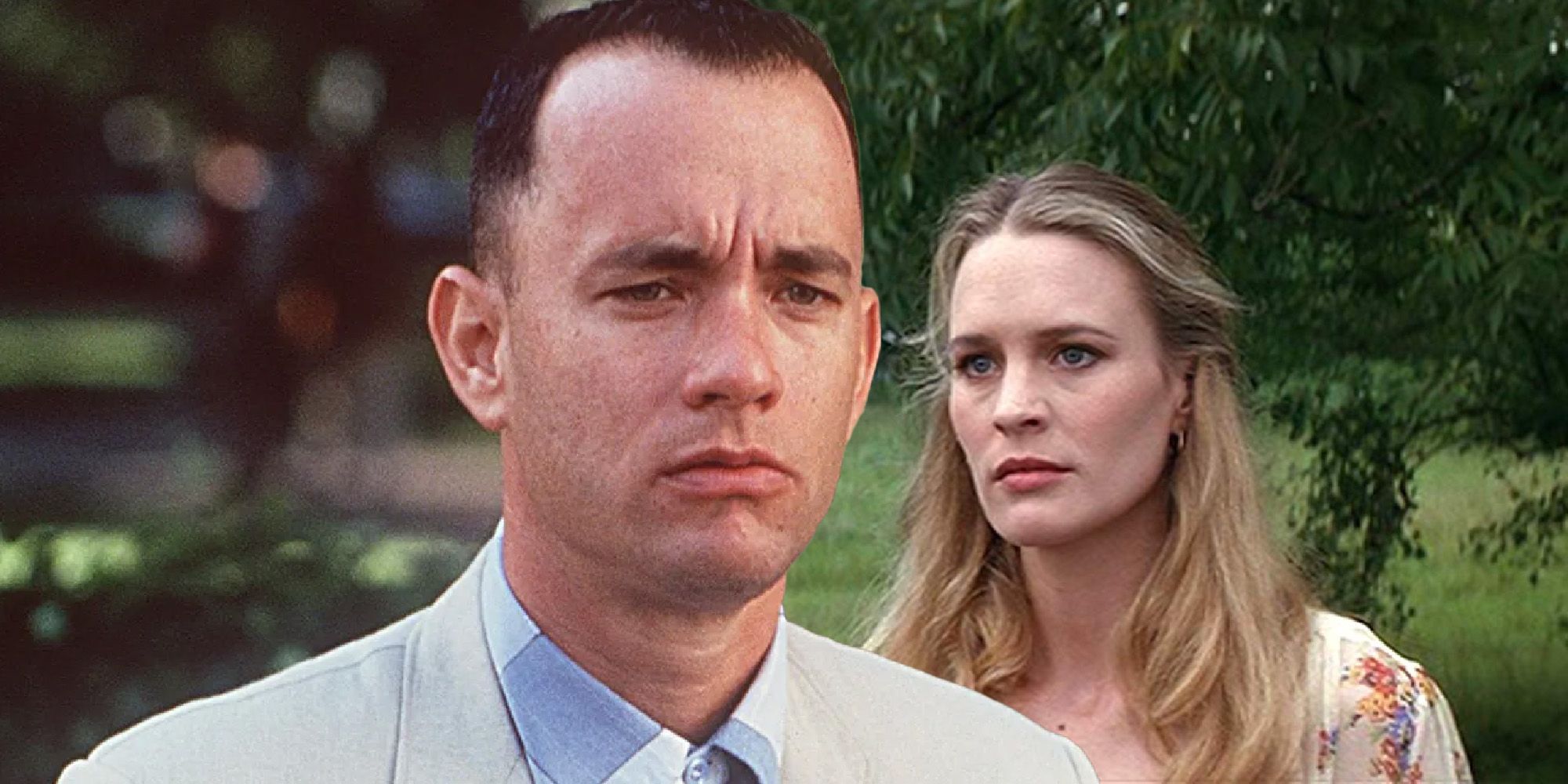What’s the true cause of death for Jenny Curran in Forrest Gump? Portrayed by Robin Wright, the character endures traumatic experiences as a child, and later becomes associated with the counter-culture movement in ’70s San Francisco. Robert Zemeckis’ 1994 film centers on Forrest’s life accomplishments, but the story is grounded by his unconditional love for Jenny.
Tom Hanks’ protagonist stays fiercely loyal to Jenny in Forrest Gump. They bond as young children and then separate as young adults because of the Vietnam War. Forrest fulfills his vow to write letters for Jenny, only to discover that all of them had been returned because of an invalid mailing address. After becoming a war hero and receiving the Medal of Honor, Forrest reunites with Jenny at a 1967 anti-war rally Washington D.C. but then doesn’t see her for nearly a decade. In 1976, Jenny returns home to Alabama and has sex with Forrest but takes off again. Whereas Forrest Gump’s early conflict stems from life events that took him away from Jenny, the final act drama explores what brings them together.
Click the button below to start this article in quick view.
Forrest Gump‘s climax explains the opening premise and builds to two major reveals. In 1981, Forrest travels to Georgia upon receiving a letter from Jenny, who knows the truth about why her long-time friend spent years running across America – he was heartbroken and nostalgic for the past. Forrest discovers that Jenny gave birth to Forrest Jr. (Haley Joel Osment), thus making their bond stronger, and then learns that Jenny has “some kind of virus” that doctors can’t explain. Wright’s character dies after marrying Forrest, and her illness is never clarified within the film. Jenny’s true cause of death was long rumored to be associated with either HIV/AIDS or Hepatitis C due to the early ’80s setting and the character’s lifestyle from years prior.
In 2019, Forrest Gump screenwriter Eric Roth confirmed that Jenny did indeed die from HIV/AIDS complications. During an interview (via Yahoo Entertainment) about the film’s 25th anniversary, Roth discussed the details of a sequel that was cancelled after the 9/11 terrorist attacks in 2001. He reveals that the Forrest Gump sequel was actually going to open with the revelation that Forrest Jr. had AIDS, the result of acquiring the disease from his mother, Jenny. Roth also notes that he wrote a comedically dark scene involving Florida kids that refused to attend the same school as Forrest Jr.:
“We had a funny sequence where they were [desegregation] busing in Florida at the same time, so people were angry about either the busing, or [their] kids having to go to school with the kid who had AIDS. So there was a big conflict.”
Per Roth, the Forrest Gump sequel had more dark subtext beyond the HIV/AIDS plot line. One scene involved Hanks’ character riding in the back of O.J. Simpson’s Ford Bronco during the infamous 1994 freeway chase in Los Angeles, and another scene had Forrest ballroom dancing with Princess Diana (who tragically passed away in 1997). Roth also wrote a sequence where a Native American character who Forrest befriends gets killed in the 1995 Oklahoma City bombing. The sequel was ultimately cancelled when the 9/11 tragedy made the screenplay “meaningless.” And so movie fans are left with Forrest Gump, a ’90s classic that does indeed cover many historical events but ultimately settles on Jenny’s legacy.
About The Author

